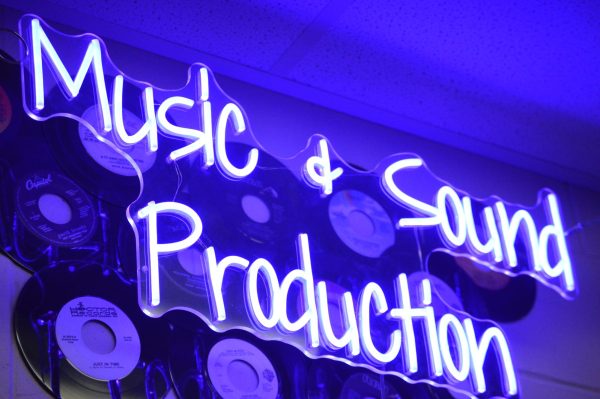Under calculating success
GPAs don’t accurately reflect the rigor and work of students due to no weighting being given to performing arts classes
GPAs don’t accurately reflect the rigor and work of students due to no weighting being given to performing arts classes.
Madelyn Lerew is a junior and Online Editor for the Fishers Tiger Times. Her views do not necessarily reflect those of the newspaper.
Your grade point average (GPA) is the number that defines your academic worth throughout your high school career. It allows onlookers to decide if you are an exemplary student or not. This number is calculated by taking into account the grades you receive in your classes and the rigor of said courses. Not all classes are treated equally under this system, with performing arts classes not receiving the same GPA boost as honors and college-level courses. Higher-level performing arts classes should be given the same GPA weighting as honors-level classes.
FHS operates on a 4.33 GPA scale with higher-level classes being given extra weight. An honors-level course is given a 0.96 weight and a college-level course, AP, IB and ACP, is given a 0.143 weight. After a student’s unweighted GPA is calculated these amounts are added for each semester that each level course was taken. Every subject has numerous honors and college-level courses made available for students to take, with the exception of fine arts. There are three college-level performing arts courses offered and they all involve the study of things like film and music. None of these classes actually allow students to build skills in performing arts as the regular unweighted classes do.
In order to be able to participate in the higher-level performing arts groups, you must show skill and understanding in the type of performance that the class is centered on. This can require years of consistent hard work from the student’s end; an example of this is the time it takes to learn piano. According to Hoffman Academy, beginning piano players need to practice for one hour a day in order to show significant improvement. Classes do not meet every day, meaning that students need to be practicing on their own time in order to show the necessary amount of skill to get them into the higher-level performing arts groups. This time spent practicing is equivalent to time spent studying for advanced courses in other subjects. When trying to improve their writing skills students must practice and study to show improvement over time. Time invested into performing arts classes should be valued, GPA-wise, the same amount as time in other classes.
Having a high GPA is a rewarded and sought-after thing. Students who at the end of the year have a GPA of 4.30 or higher receive the title Summa Cum Laude and are given a plaque and awards ceremony. Seniors who achieve this are also given special recognition at graduation. Not only is a high GPA beneficial in high school, but it can also improve your chances of getting into a prestigious university. According to Crimson Education students admitted to top colleges typically have a weighted GPA of above 4.0. With all this in mind, it becomes incredibly clear that students should have a GPA that accurately reflects their grades and the rigor of their courses. Higher-level performing arts classes should be given an honors-level weighting in order to accurately reflect the skill and workload required to take them.

Madelyn Lerew is a senior at Fishers High School. She is a drum major for the marching band and enjoys hanging out with her friends.












